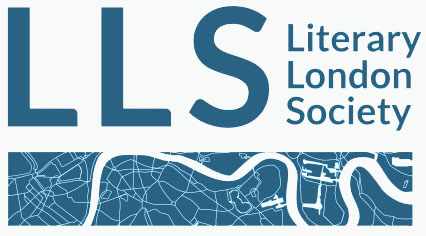Ian McEwan, Saturday
(Toronto: Alfred A. Knopf, 2005). 280 pp. ISBN 0676977618 $34.00 Can. (£17.99 UK)
Lynn Wells
With Saturday, Ian McEwan seems to have hit upon the most fortuitous combination of qualities possible in a novel. Not only is the book a runaway bestseller and the object of critical reverence, it is also that rare artifact: a work of fiction that appears to crystallise the state of a society at a defining moment, in this case London just before the 2005 terrorist bombings, which McEwan presciently anticipates in the novel’s final pages. London, we are told, is ‘waiting for its bomb’ (p. 276).
Although the action is set in a day-long time-frame on Saturday, February 15, 2003 — the day of the mass protest against the imminent invasion of Iraq — the urban landscape created by McEwan captures a sense of cultural anxiety that had been building since the events of September 11, 2001 and had become an inescapable fact of contemporary London life, if only a mildly repressed one, leading up to July’s horrific attacks. In a newspaper article published by The Guardian the day after the first series of bombs, McEwan asks, ‘How could we have forgotten that this was always going to happen?’
In some respects, the novel bears out this feeling of doomed inevitability. The opening scene shows the main character, the successful neurosurgeon Henry Perowne, watching a burning plane about to crash into the city, a spectacle he finds dishearteningly familiar. Images of 9/11 pervade the surface normalcy of Perowne’s life, from the ‘glass-paned stalk’ (p. 196) of the local Post Office Tower, to the lurking presence of the thug Baxter, who smashes into the doctor’s expensive car then invades his home and terrorises his family. On one level, Baxter clearly represents the international hordes plotting to disrupt London’s domestic security just as they did in New York.
On another level, though, Baxter is a potent reminder that threats need not come from the outside, an idea made brutally manifest by July’s home-grown terrorists. Saturday is also a novel about the internal dangers of London society, the fault-lines opened up by race and class. Although the focalised narration is cagily silent about the cultural derivation of the book’s desperately impoverished and neurologically ill villain, it is otherwise quite specific about people’s race and economic status. Through the eyes of Perowne, who looks down on the drug addicts and hookers in the square outside his opulent home with ‘the remote possessiveness of a god’ (p. 13), we see a stratified London, where the white middle class, safely ensconced behind high-tech security systems, presides over the multicultural masses who co-exist peacefully so long as they are industrious.
And this is where Saturday, for all its persuasive attention to its hero’s inner life and the sensitivities of his age, fails as an image of contemporary London. The very real problems facing British society, domestic and international, acted out in the conflict between Perowne and Baxter, in the end disappear into an imperialist fantasy of middle-class dominance, capped by a reading of Matthew Arnold’s ‘Dover Beach’. The doctor not only vanquishes his enemy, chivalrously saving his wife and daughter from sexual depredation in the process, he also triumphs over him for a second time with his superior medical knowledge, restoring minimal order to his ravaged brain, with its damaged areas ‘like bad neighbourhoods in an American city’ (p. 254).
The city as metaphor is crucial to Saturday, beginning with the epigraph from Saul Bellow’s Herzog, which presents two contrasting views of modern urban life, as oppressive or liberating. Clearly, Perowne’s experience of the city is the latter; he thinks of it as ‘a success, a brilliant invention, a biological masterpiece’ (p. 5). With his loving family, comfortable wealth and power over his adversaries, it is little wonder that he thinks so. Yet we should come away with the sense that something crucial, something imminent and frightening is being concealed by Perowne’s elegant world. With London’s bomb inevitably coming, one gets no sense of a need for urgent cultural change from the novel’s ending, which papers over the implications of the disparity between the doctor and the street-thug and suggests that life can go on happily for the English middle class. There is no direct indictment of Henry Perowne’s vision of things, and if McEwan’s famous irony is at play here, its subtlety has obviously been lost on readers and critics alike, who hail the book as a masterpiece of British fiction.
To Cite This Article:
Lynn Wells, ‘Review: Ian McEwan, Saturday’. Literary London: Interdisciplinary Studies in the Representation of London, Volume 3 Number 2 (September 2005). Online at http://www.literarylondon.org/london-journal/september2005/wells.html. Accessed on [date of access]
